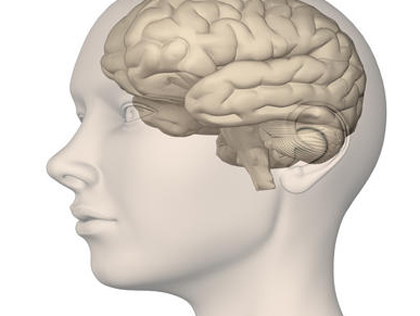Being in a positive mood may affect our memory, but in a negative way.
A recent study has found that forgetfulness has something to do with positive emotions. Elizabeth Martin, a doctoral student of psychology in the College of Arts and Science of the University of Missouri in the United States, has found that being in a positive mood decreases our working memory capacity, according to news reports.
Research was conducted on two groups of participants who were shown different genres of video clips. One group watched a video of a stand-up comedy whereas the other group watched a video segment on how to install flooring. Unsurprisingly, those who watched the comedy videos were in a significantly better mood than those who watched the flooring video.
A memory test was conducted on the participants in the two groups after showing them the video. When participants were asked to recall numbers from a recording they heard, those who watched the comedy performed worse than those who watched the educational segment. Apparently, they were in a much better mood than those who scored higher.
However, more research must be done in real-life situations to concretely prove the impact of mood on working memory capacity, Martin said. Moreover, being in a good mood has other positive effects. “Being in a good mood may increase our creative problem solving skills and other aspects of thinking,” says Martin.
Martin’s research on the relationship between mood and memory was published recently in Cognition and Emotion, a science journal.
By Yun Suh-young (syun@heraldcorp.com)
Intern Reporter
Edited by Rob York

<한글 기사>
기분 좋을 땐 기억력 떨어져
기분이 좋을 땐 기억력이 떨어진다는 연구결과 가 나왔다.
미국 미주리 대학 심리학과의 엘리자베스 마틴(Elizabeth Martin) 연구원은 긍정적인 기분이 `작업 기억'(working memory) 저장에는 부정적인 영향을 미친다고 밝힌것으로 사이언스 데일리가 31일 보도했다.
작업기억이란 특정과제를 수행하는 데 필요한 정보를 잠정적으로 저장하기 위해 단기기억(short-term memory) 기능을 이용하는 것을 말한다.
마틴 연구원은 일단의 참가자들을 대상으로 실시한 실험 결과 이러한 사실이 밝혀졌다고 말했다.
연구팀은 이들을 두 그룹으로 나누어 각각 코미디 비디오와 마룻바닥을 까는 요령을 보여주는 교육비디오 일부분을 보여주고 비디오 보기 전과 후의 기분을 측정한 결과 코미디 비디오 그룹은 기분이 좋아졌고 교육비디오 그룹은 기분의 변화가 없었다.
연구팀은 이어 이들에게 헤드폰을 통해 1초에 숫자를 4개씩 불러주고 난 다음 마지막으로 불러준 수자 6개를 차례로 기억해 내도록 했다.
결과는 코미디 비디오 그룹이 교육비디오 그룹보다 성적이 훨씬 나쁜 것으로 나타났다.
이 연구 결과는 과학 전문지 '인지와 감정(Cognition and Emotion)' 최신호에 실렸다.
(연합뉴스)



![[AtoZ into Korean mind] Humor in Korea: Navigating the line between what's funny and not](http://res.heraldm.com/phpwas/restmb_idxmake.php?idx=644&simg=/content/image/2024/04/22/20240422050642_0.jpg&u=)


![[Herald Interview] Why Toss invited hackers to penetrate its system](http://res.heraldm.com/phpwas/restmb_idxmake.php?idx=644&simg=/content/image/2024/04/22/20240422050569_0.jpg&u=20240422150649)
![[Graphic News] 77% of young Koreans still financially dependent](http://res.heraldm.com/phpwas/restmb_idxmake.php?idx=644&simg=/content/image/2024/04/22/20240422050762_0.gif&u=)







![[Exclusive] Korean military to ban iPhones over security issues](http://res.heraldm.com/phpwas/restmb_idxmake.php?idx=652&simg=/content/image/2024/04/23/20240423050599_0.jpg&u=20240423171347)



![[Today’s K-pop] Ateez confirms US tour details](http://res.heraldm.com/phpwas/restmb_idxmake.php?idx=642&simg=/content/image/2024/04/23/20240423050700_0.jpg&u=)